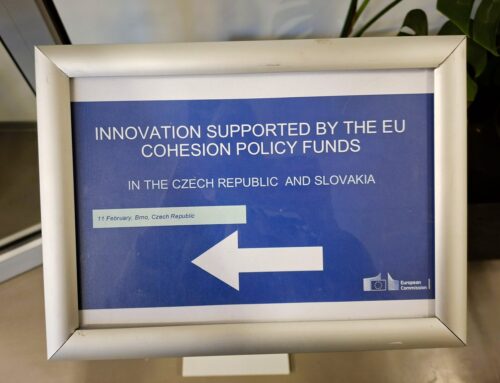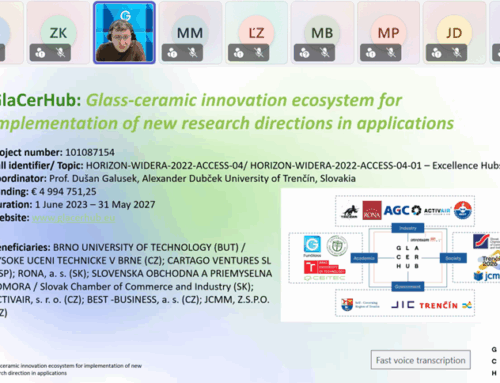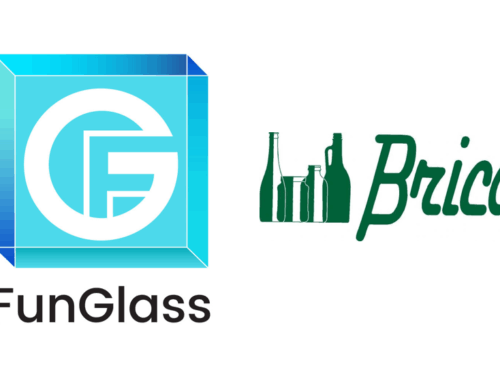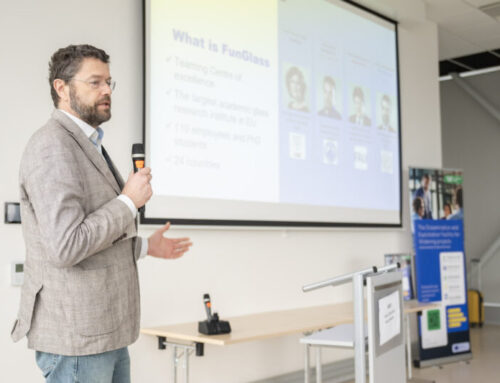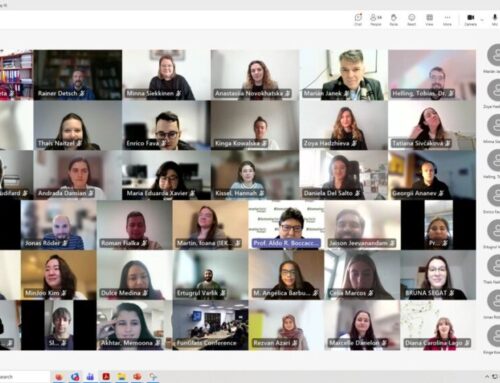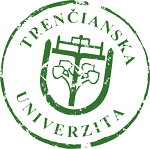FunGlass at ECerS 2025 in Dresden
From August 31 to September 4, 2025, the XIX Conference of the European Ceramic Society (ECerS) took place at the International Congress Center in Dresden, Germany. This major scientific event brought together 1,450 participants from 47 countries, featuring 53 exhibitors, 15 symposia, and 3 satellite symposia. It offered an outstanding platform to present and exchange the latest advances in ceramic science and technology.
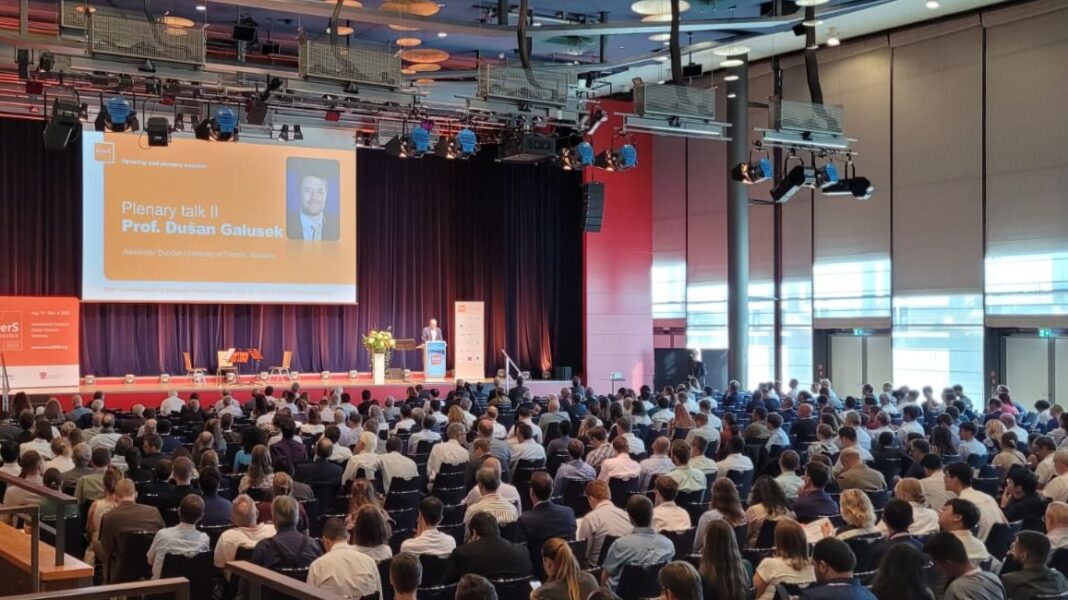
We are proud to share that our director, Prof. Dušan Galusek, was invited as a plenary speaker, delivering an inspiring lecture titled:
“Do we really need very high temperatures to prepare hard-to-sinter oxide ceramics?”
His talk addressed the challenges of sintering oxide ceramics—especially transparent ones—which typically require extreme temperatures or pressure-assisted methods that risk carbon contamination. Prof. Galusek showcased innovative strategies developed at FunGlass to overcome these limitations, including the use of unconventional sintering additives, cold sintering techniques, and specially engineered precursor powders.
The lecture highlighted how optimized sintering protocols, both with and without applied pressure, can enable the fabrication of translucent ceramics and materials with tailored microstructures, such as eutectic-like systems. These advancements open new possibilities for energy-efficient and contamination-free ceramic processing.
Our researchers and students actively contributed to the conference through their presentations:
- Assoc. Prof. David Salamon gave a lecture on Reactive sintering of high entropy carbide in various Spark Plasma Sintering systems.
- Dr. Anastasiia Novokhatska: Development of SOFC components by multi-material LCM 3D printing.
- Dr. Diana Lago:
- Additive manufacturing of tailored nanoporous glass for wastewater treatment, focused on the most recent results of my ongoing work and was carried out in collaboration with Lithoz.
- Integrating Experiments and Simulations for Cesium Immobilization: A Cold-Consolidation Strategy for Repurposing Glass Waste in Nuclear Applications, was delivered on behalf of Dr. Alfredo Sánchez. This work was developed in collaboration with Prof. E. Bernardo
- Dr. Ali Najafzadeh: The importance of layer compatibility in laminar structures for transparent ceramics. (The support funded by the EU NextGenerationEU through the Recovery and Resilience Plan for Slovakia under the project No. 09I03–03-V04–00196 is gratefully acknowledged. )
- Dr. Ali Talimian delivered two talks:
- Compositional dependence of crystallization in sodium-alkaline earth aluminosilicate glass-ceramics
- Ion Exchange in Mixed Alkali Silicate Glasses: Impact of Composition on Structure and Properties
- Dr. Zulema Vargas: Multifunctional magnetic mesoporous silica enriched biopolymer sponges for controlled drug delivery and hyperthermia.
- Dr. Mai-Phuong Truong: Pressure-Assisted Sintering Approach for Up-converting LiYF4:Er/Yb Transparent Oxyfluoride Glass-Ceramics.
- Mahdi Babaei: Thermophysical Properties of 9-Component Composite Phase High-Entropy Ceramics for Next-Generation Thermal Barrier Coatings.
- Mohammed Boujida: Glass microspheres: structural and optical properties for WLED application.
- Sheeraz Khan: Corrosion behavior of fused-cast AZS refractory materials in contact with barium cristallin glass.
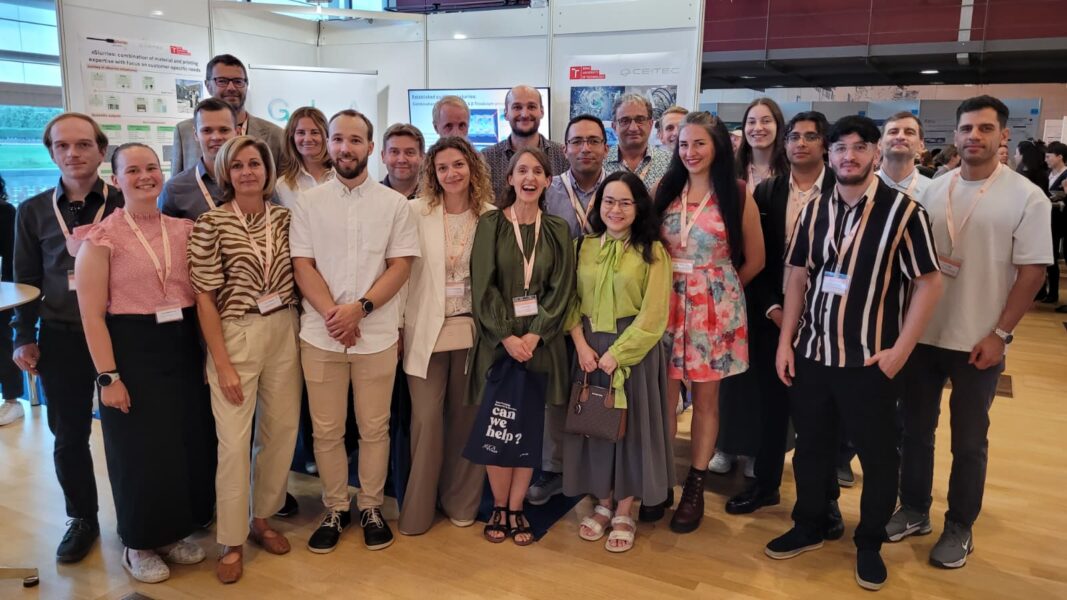
Throughout the conference, our colleagues and students not only showcased FunGlass research but also engaged closely with our GlaCerHub partners from CEITEC – Central European Institute of Technology, Brno.
This opportunity allowed our team to share findings, engage in stimulating discussions with peers and experts, and gain valuable feedback to shape the future of their work. What made the experience especially meaningful was not only presenting results but also exchanging ideas, building collaborations, and finding fresh motivation to push the boundaries of innovation in glass and ceramic materials. Conferences like ECerS remind us that true progress comes from sparking what comes next.
FunGlass is proud to contribute to the global dialogue on sustainable and advanced ceramic technologies.


